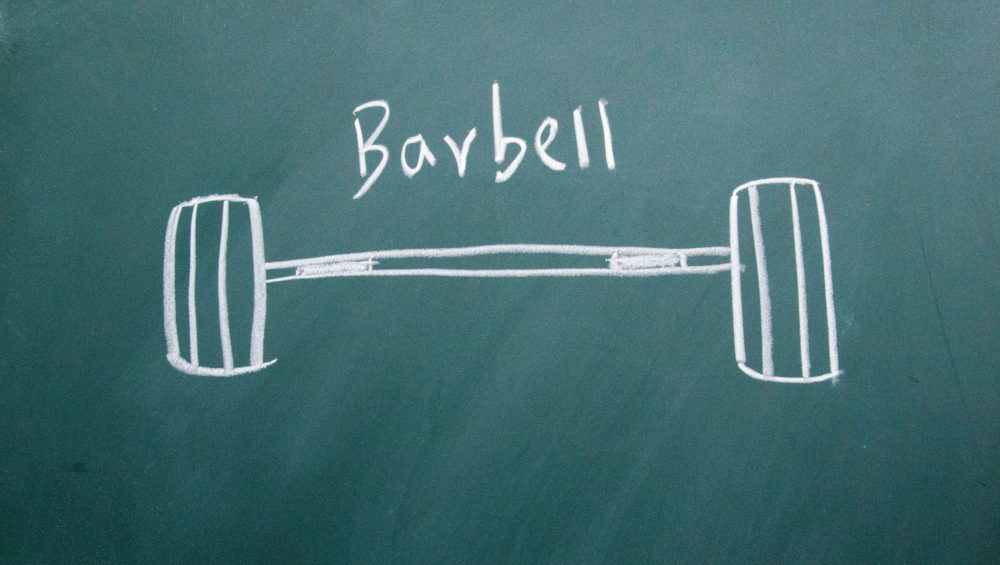Greg Nuckols was nice enough to stop by and talk shop about MASS – Monthly Application in Strength Sport – his new monthly resource that just became available today.
An athlete or coach who knows and truly understands the latest research has a huge advantage over his or her’s competitors. MASS is a shortcut that earmarks all the greatest and most recent research and is curated by some of the most respected coaches out there – Greg, Eric Helms, and Mike Zourdos.
Coaches who actually, you know, lift weights.
Greg offers some great insights below. Enjoy.
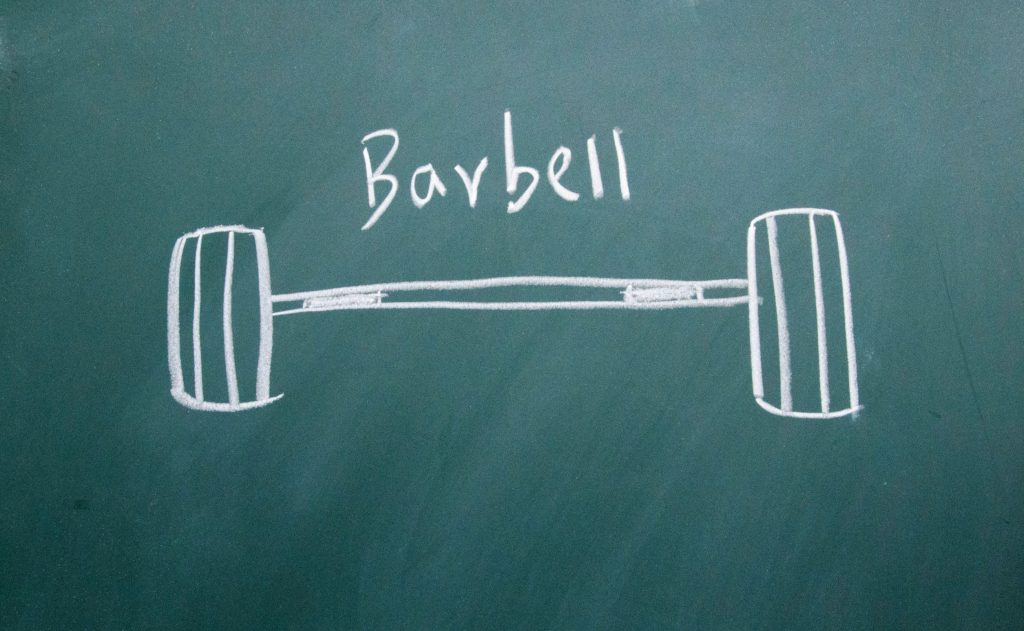
TG: Who’s geekier: you, Eric (Helms), Mike (Zourdos), or Gilbert and Lewis from “Revenge of the Nerds?”

TG: What was the impetus behind starting MASS? Also, what do you feel separates it from other research reviews out there?
GN: It was the logical solution to a set of problems we saw:
#1 – Most people are still quite uninformed about the science behind hypertrophy, strength development, and body composition. We’d never argue that science is inherently better than in-the-trenches experience, but we think science and experience work together much better than having either in isolation.
#2 – A lot of people who try to communicate science to the masses do so poorly. This can take several forms.
A lot of people just read the abstract, which is generally incomplete or misleading.
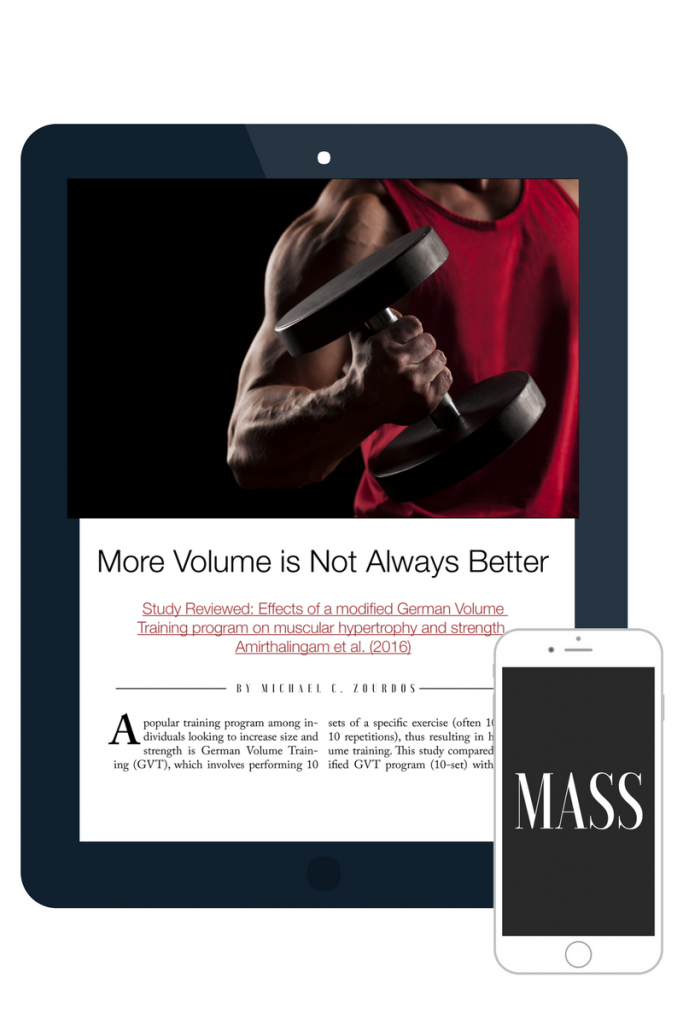
Some people read the full text, but can’t digest studies well enough to spot some of their bigger (and more important) details – stuff like methodology, the tools used to take measurements, or the statistical analysis can dramatically alter what you can take away from a study, but those things are often glossed over.
Finally, there’s the issue of contextualization and communication. Simply understanding a study doesn’t guarantee that you’ll be able to get the results and practical takeaways across to the reader, and it doesn’t guarantee that you’ll know how the findings can fit into day-to-day practice if you don’t actually have any coaching experience.
#3 – Trying to keep up with the research on your own can be absolutely overwhelming.
There are at least 50-60 journals that publish research that’s relevant to us at least semi-frequently, and they churn out 1000+ articles per month. Going through all those journals, picking out the relevant studies, and reading all of them takes me (conservatively) 40-50 hours per month.
Note From TG: The only way you’d get me to spend 40-50 hours per month reading research is this:
After that whole process, there are generally fewer than 10 new studies that materially affect day-to-day practice for strength and physique athletes/coaches, but it takes a ton of back-end work to track them all down.
Once those pieces came together, starting MASS (Monthly Applications in Strength Sport) was a no-brainer. It gets science out to the masses in a clear, understandable format, and it saves people massive amounts of time and money (journal access isn’t cheap, after all).
We’re different from other research reviews in two major ways: scope and presentation.
Scope is probably the most important distinction. MASS focuses solely on science that’s relevant to strength and physique athletes. It’s not for people focused on general health. It’s not for S&C coaches or team sport athletes. It’s not for rehab professionals.
If your primary goal is to pick up heavy things, get jacked, or improve your body composition (or you train people with those goals), MASS is for you.
Since we have such a relatively narrow focus, we do the best job providing information that’s highly useful and relevant for that population.
With regards to presentation, we have a mix of written and video content, depending on what a given research topic best lends itself to, whereas the other reviews I’m aware of are solely written. We also have mobile-friendly versions of all of our articles, which is helpful for people trying to read MASS on the go with their mobile device.
TG: How much of a balancing act is there between being an “evidence-based coach” and respecting research and anecdotal experience? Is there a balancing act? In other words: Is there a percentage breakdown between how much we should base our training/program design/methodologies off research and how much of it comes from “feel” and anecdotal shenanigans?
GN: There’ll always be a mix.
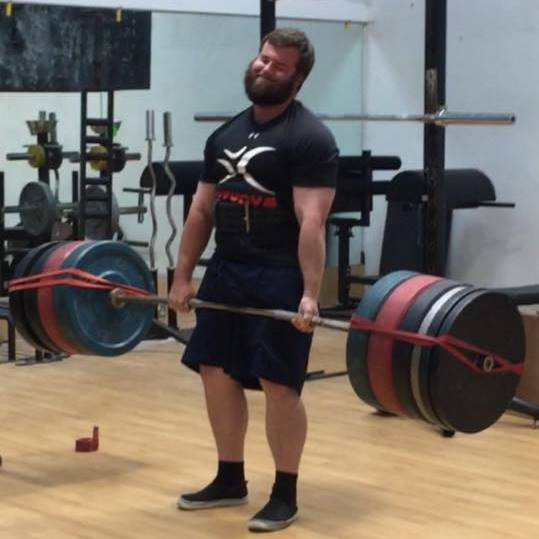
Scientific research is the best tool we have to tell us what works better or worse on average for a given population, and it’s also the only tool we have for discovering the physiological underpinnings of training practice (not just “what” works, but “why” it works).
With that in mind, science helps give you a fantastic starting point for your own training or coaching, and it helps you avoid a lot of nonsense fads because understanding physiology helps tune your bullshit detector.
After you use the research findings as a starting point, you always need to do some self-experimentation and troubleshooting to optimize your approach for yourself or your clients, because what works best on average may not be what works best for each individual.
Understanding the basic physiology helps guide that troubleshooting as well, though, by helping you understand what tweaks are more or less likely to be helpful.
TG: What are you favorite, most referenced, or “go to”strength & conditioning studies of all time?
There are too many to list! Here are a few I find myself referring to a lot, though:
A meta-analysis of periodized versus nonperiodized strength and power training programs
The role of FFM accumulation and skeletal muscle architecture in powerlifting performance
Effect of squat depth and barbell load on relative muscular effort in squatting
A three-dimensional biomechanical analysis of sumo and conventional style deadlift

MASS Spread: I.e., what an issue looks like on the inside.
TG: Any studies you feel people use or gravitate towards that are complete BS or bunk?
GN: There’s a decent amount of supplement research I’m pretty distrustful of.
When a supplement is independently tested in a bunch of different labs and shows pretty “meh” results, and then it’s tested in a study funded by the patent holder and it suddenly looks like a legal replacement to steroids…I get skeptical.
TG: Okay, short and sweet: why should people consider MASS. How will it help them?
GN: If you’re already sold on the value of keeping up with scientific research, MASS will save you a massive amount of time and dig into the research that’s relevant to you in a lot more depth than you’ll find elsewhere.
Since all three of us are athletes and coaches as well, we know what sort of information you’re looking for, and what will directly improve your results or the results of your clients.
How to Get MASS
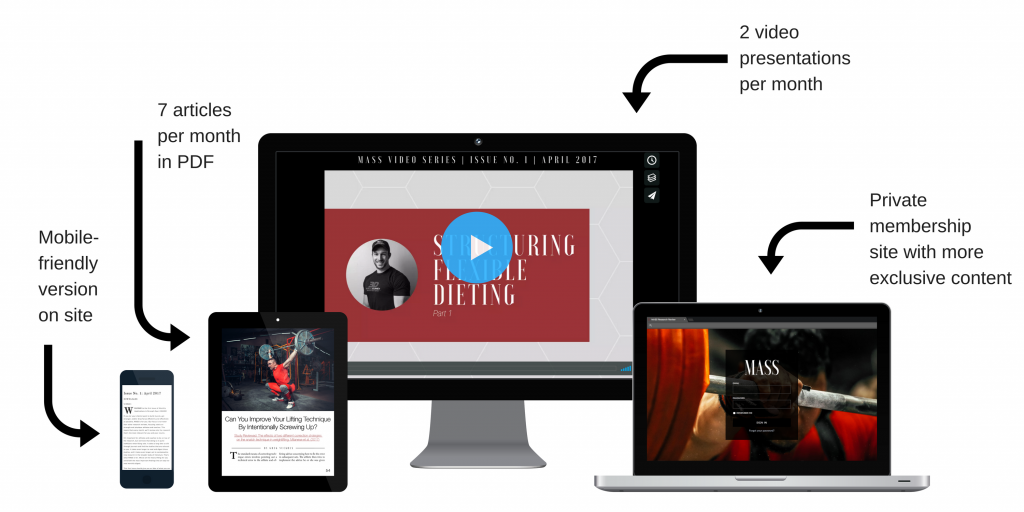
I gotta be honest: Greg sent me the first copy of MASS a few weeks ago and it’s really, really, really good.
I hate reading research.
I’d rather do any of the following than peruse PubMed on a Friday night:
- Light my face on fire.
- Go to a One Direction concert.
- Talk about my feelings.
Greg, Eric, and Mike have done the industry a solid by putting together this amazing resource that will not only help you stay sharp and on top of the most recent research…..
……but you’ll save a TON of time to boot.
The initial launch of MASS starts today (5/1) and runs through this Friday. Here are the introductory prices:
- $25/month for monthly
- $249/year for yearly
- $799/lifetime (one-time purchase)
These prices will go up 20% after this week. It’s a steal for the amount of information you’re getting.

